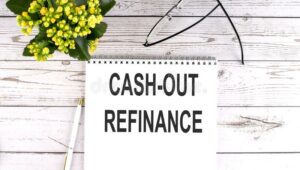
If you are considering a cash-out refinance to purchase a second house, there are a few things to consider.
What is a Cash-Out Refinance?
Cash-out refinances are a way of refinancing your mortgage by converting your equity into cash. You get a mortgage that is higher than your old balance and the difference in cash.
One of the most common reasons for refinancing is to get better terms than what they had with their previous loan. You might refinance, for example, to lower your monthly payment or take advantage a lower rate of interest. Cash-out refinances are a great way to tap into your home’s equity and get cash.
In a cash-out loan, your home is used as collateral. You’ll get a new mortgage that is larger than the amount you currently owe.
How to Buy a Home with a Cash-Out Refinance
Cash-out refinancing is only possible if your home’s current value is higher than the balance of your mortgage.
A lender will allow you to withdraw up 80% of the value of your house, minus any remaining balance.
You can use the money you receive to put down your next property.
As with a conventional refinance loan, you still need to qualify.
In most cases, lenders will require at least a credit score above 620 and a debt to income ratio of 50%, but preferably lower.
If you plan to use the cash-out refinance proceeds to purchase an investment property, expect to put down anywhere between 15 and 25%.
If you are buying a primary home, a lower down payment is accepted.
Lenders do not have any guidelines that prohibit you from using the proceeds of a cash-out refinance to pay for the down payment on another property.
Considerations to Keep in Mind
You can choose between a fixed rate or variable rate loan when applying for a refinance cash-out. If you receive a variable-rate mortgage, your payments may increase depending on the interest rates.
If you refinance with cash out, the interest rate of your new loan could be higher than that of your original loan. This means you may end up paying more over the life of your loan.
You need to decide if you can afford the extra interest you would pay if you bought another property. This can also extend the repayment period of your current debt, so it’s not always a good choice.
Closing costs can range from 2 to 5% of your new refinance loan. These will be deducted from your cash payout. You can’t add them to the mortgage.
A home equity loan is another option. Home equity loans do not have closing costs. This is a major advantage. This could be cheaper than a cash out refinance, if you have a mortgage with a lower rate than what is required.
The biggest disadvantage of a cash-out refinance, is that you will have to use your primary residence as collateral, even if it’s to purchase another home. Your lender can prevent foreclosure on your primary residence if you default.
Original Blog: https://realtytimes.com/archives/item/1045164-using-a-cash-out-refinance-for-a-second-home?rtmpage=